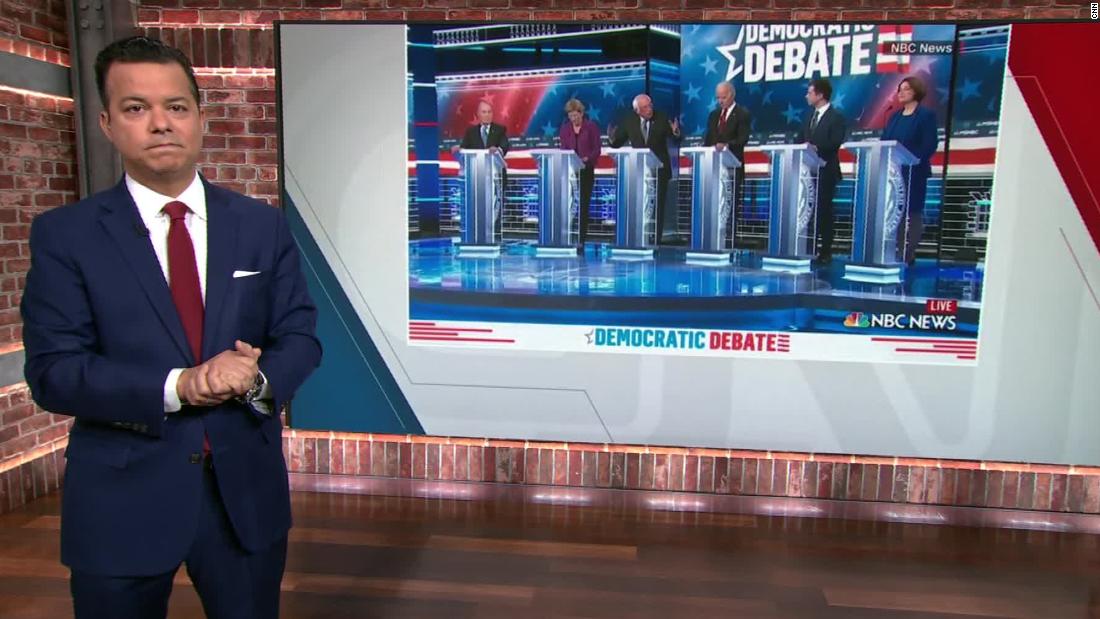Understanding Debate Fact Checking

Debate fact check – In today’s fast-paced political climate, where misinformation and disinformation run rampant, debate fact-checking has become an essential tool for separating truth from fiction.
Fact-checking has become increasingly important in the digital age, as misinformation spreads rapidly. In the realm of sports, the Dallas Wings vs Seattle Storm game was a prime example of the need for accurate information. With both teams vying for a playoff spot, every detail mattered.
Debate fact-checking helped ensure that fans had access to reliable information about the game’s outcome.
Fact-checking in debates involves verifying the accuracy and veracity of claims made by candidates or participants. It ensures that the public has access to reliable information to make informed decisions about the issues at hand.
In the realm of debate fact-checking, discerning the truth can be akin to navigating the murky depths of a vast ocean. However, for those seeking clarity on the contentious topic of “dal vs sea,” a beacon of knowledge awaits in the form of a comprehensive analysis here.
Through rigorous research and meticulous fact-checking, this invaluable resource sheds light on the complexities of this age-old debate, providing a much-needed compass for those seeking to separate truth from fiction.
Significance of Debate Fact Checking
- Promotes transparency and accountability in political discourse.
- Provides voters with accurate information to make informed decisions.
- Holds candidates responsible for their statements and prevents the spread of false information.
Common Fact-Checking Techniques, Debate fact check
- Independent Research: Verifying claims using credible sources such as news articles, academic studies, and official documents.
- Expert Consultation: Seeking input from subject matter experts to confirm or refute claims.
- Contextual Analysis: Examining claims within the broader context of the debate to assess their validity.
Challenges and Limitations
- Real-Time Nature: Fact-checking in debates often occurs in real-time, making it difficult to verify complex claims thoroughly.
- Bias and Partisanship: Fact-checkers must remain impartial and avoid bias in their evaluations.
- Limited Scope: Fact-checking cannot always cover all claims made in a debate, especially if they are numerous or complex.
Methods and Approaches to Debate Fact Checking

Fact-checking debates involves a rigorous process of evaluating the accuracy and validity of claims made by participants. This task requires a combination of research, critical thinking, and adherence to established methodologies. Various approaches to fact-checking exist, each with its advantages and disadvantages.
Research and Evidence
Thorough research forms the cornerstone of effective fact-checking. Fact-checkers rely on credible sources, such as academic journals, government reports, and reputable news organizations, to verify claims. Evidence, in the form of data, statistics, or expert opinions, is essential for supporting or refuting assertions.
Fact-Checking Approaches
| Approach | Advantages | Disadvantages |
|---|---|---|
| Real-Time Fact-Checking |
|
|
| Post-Debate Fact-Checking |
|
|
| Collaborative Fact-Checking |
|
|
The choice of fact-checking approach depends on factors such as the time constraints, resources available, and the desired level of accuracy. Real-time fact-checking, while immediate, may compromise thoroughness, while post-debate fact-checking allows for more in-depth verification but has a delayed impact.
Impact and Implications of Debate Fact Checking

Debate fact-checking has the potential to significantly impact the outcomes of debates. By providing accurate and timely information, fact-checkers can help voters to make informed decisions about the candidates and their policies. Fact-checking can also help to hold candidates accountable for their statements and to prevent them from misleading the public.
However, there are also a number of ethical considerations involved in debate fact-checking. Fact-checkers must be impartial and accurate in their work, and they must avoid bias or partisanship. They must also be transparent about their methods and sources, so that the public can trust their findings.
Inaccurate or biased fact-checking can have serious consequences. It can mislead voters, undermine the public’s trust in the electoral process, and even lead to violence. Therefore, it is essential that fact-checkers are held to the highest ethical standards.
Potential Impact of Fact-Checking on Debate Outcomes
Fact-checking can have a number of potential impacts on debate outcomes, including:
- It can help voters to make informed decisions about the candidates and their policies.
- It can help to hold candidates accountable for their statements.
- It can prevent candidates from misleading the public.
- It can help to improve the quality of public discourse.
Ethical Considerations Involved in Debate Fact-Checking
There are a number of ethical considerations involved in debate fact-checking, including:
- Fact-checkers must be impartial and accurate in their work.
- They must avoid bias or partisanship.
- They must be transparent about their methods and sources.
- They must be accountable for their findings.
Consequences of Inaccurate or Biased Fact-Checking
Inaccurate or biased fact-checking can have serious consequences, including:
- It can mislead voters.
- It can undermine the public’s trust in the electoral process.
- It can lead to violence.
Therefore, it is essential that fact-checkers are held to the highest ethical standards.